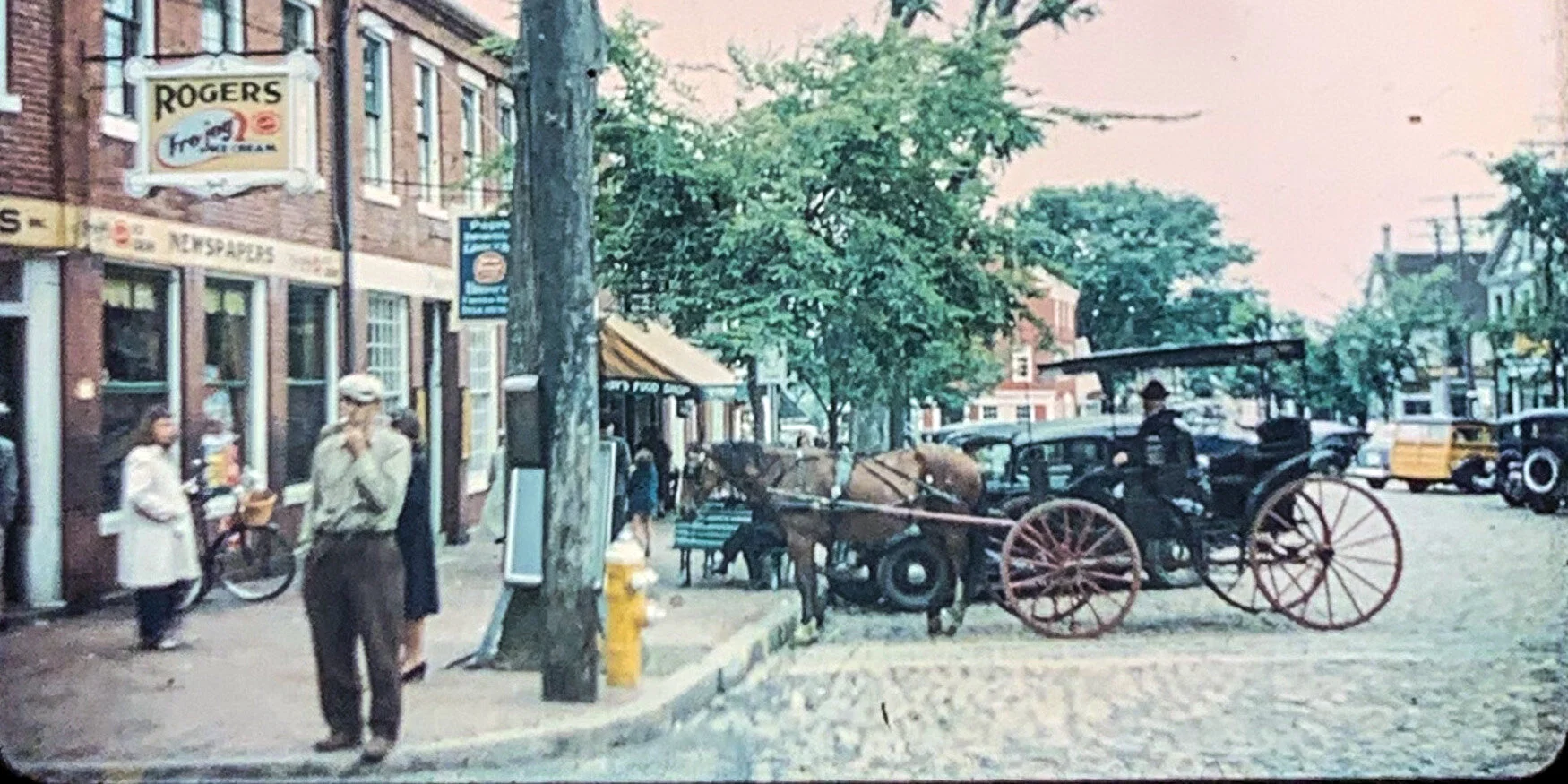No Eelgrass, No Scallops (Part I)
This is the first in a series of articles covering the health of the harbor, the factors that are contributing to its degradation, and the people that are actively working towards solutions.
A commercial scallop fisherman cruises by on Nantucket Harbor. Photo: Dan LeMaitre
Say the word “fertilizer” to anyone in the shellfishing industry on Nantucket and you will see a bead of sweat form on their forehead. It’s no secret that the runoff from fertilizer used on lawns has seriously damaged the quality of Nantucket’s harbor and ponds. The extra nutrients from fertilizer creates algal blooms which can be harmful to people and dogs, as well as aquatic life. Algal blooms cloud the surface of the water suffocating eelgrass and decimating the population of Nantucket’s iconic bay scallops.
Nantucket bay scallops. Photo: Dan LeMaitre
In 1980, a peak of 117,000 bushels of scallops were harvested by commercial scallopers on island, but in 2010 that number was whittled down to 7,000. 12 years later, the picture is even bleaker with only 3,200 bushels gathered during the 2021-2022 season. One can sense the direction in which the scallop population is headed, simply by examining the dramatic increase in price over the past year. In 2020 scallopers could sell one pound of shucked scallops at the dock for $12. Last November, the starting price was $22. Low supply, high demand.
The town recently tried to remedy this issue by bolstering the Brant Point Shellfish Hatchery. Over the past two years the town has invested millions of dollars to improve the island’s hatchery and increase its effort to seed the harbor with scallops and create oyster restoration reefs. However, these baby scallops are doomed if they are released into an inhospitable harbor, according to local oyster farmer Mac Raith.
Mac Raith on his oyster farm in Polpis harbor. Scallops and oysters filter water but seeding the harbor with them is not a complete solution to pollution and runoff, according to Raith.
“The town can seed as much scallop larvae into the harbor as it wants but only a fraction of it will survive if we continue to pollute the water. The harbor is filthy and the town needs to more strictly regulate fertilizer practices and pump out procedures on boats with toilets and showers first,” said Raith. “Step one is for the town to redirect its focus on improving the body of water where eelgrass and scallops live. Once this is achieved step two of reseeding can start. The scallop ecosystem will never thrive in a toilet bowl.”
In 2013 the town instituted regulations on fertilizer to help mitigate their harmful effects to the island’s ecosystems. However, these regulations have amounted to little more than toothless guidelines that are seldom heeded.
A neon green lawn sits adjacent Nantucket’s fragile harbor. Photo: Cary Hazlegrove
“I’m happy that we even have a fertilizer program. The fact that we require licenses to apply fertilizers is more than what a lot of communities do,” said Thais Fournier, a water resource specialist for the town. “But there are issues with the program. Enforcement is a big one. We have minimal staff that can actively, on top of their additional job, go out and check the licenses of landscapers.”
“Another issue that we run into is if fertilizer is being applied on private property, we can’t cross that private property and ask to see someone’s license,” said Fournier.
Fournier admits that solving this problem just comes down to time management.
“We need to delegate our tasks such that we can take time to go out and have more people on the ground to do this. Even if it is waiting outside by landscaping trucks and asking to see licenses, at least so people know that we are checking, that we are out there and really concerned. People tend to do the right thing when there are consequences.”
On May 2nd Nantucket residents will have the opportunity to address this issue head on and vote on Article 79 which proposes a ban on fertilizers.







